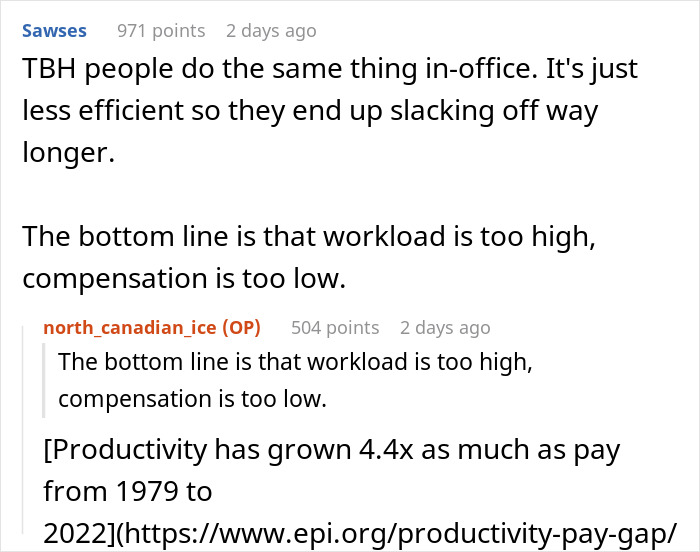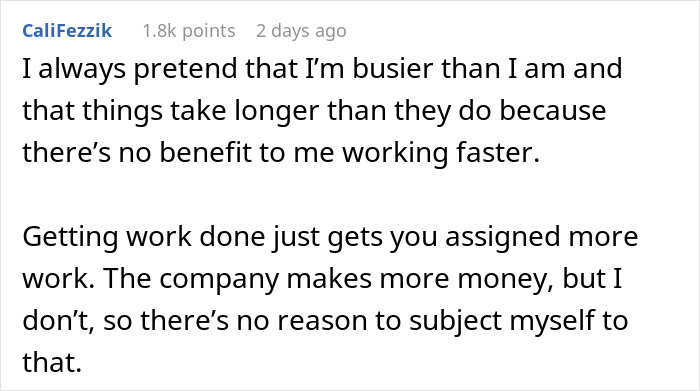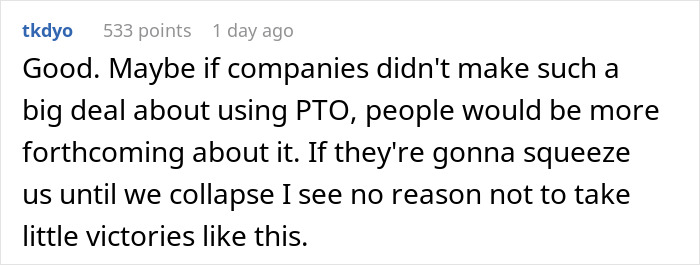Millennials Hack The 9 To 5 Work Culture By Quiet Vacationing To Enjoy Some Time Off

We spend more than one-third of our life at work, and, let’s be honest, very few people have achieved the holy grail of a work-life balance. That’s a distant dream for most of us. Which is why millennials are taking matters into their own hands.
You’ve probably heard of the term ‘quiet quitting,’ which is already one technique for combatting burnout in a toxic workplace. Now it’s time to learn about ‘quiet vacationing,’ which is the next best way to rejuvenate while still seeming like a good employee.
People are finally putting themselves first and sneakily taking time off from their jobs without actually taking any time off
Image credits: fauxels (not the actual photo)
Quiet quitting emerged as a way to fight against hustle culture and the stress of terrible work environments. People began doing the bare minimum just to get by rather than putting their all into a job that sucked their soul dry. A McKinsey survey found that nearly 20-40% of most organizations’ workforce comprises quiet quitters. But bosses didn’t do anything, despite their employees going to such extents to protect their mental health.
That’s exactly what led to the creation of this new trend, which people have been doing for a while. It’s called quiet vacationing, and the idea behind it is extremely similar. Workers often fear taking their paid time off for many reasons, mainly out of the fear of seeming replaceable. Instead, they just live out their vacation days without actually applying for leave.
Image credits: Andrea Piacquadio (not the actual photo)
Netizens believe that quiet vacationing is just a way of life and that companies need to start paying attention to the needs of their workers
Image credits: super_bowl_week
Image credits: i4techforce
Image credits: rtrnofthemack_
Image credits: yupes_
Image credits: mileslunn
Maybe the secret to achieving the best work-life balance was to be a little devious all along
Let’s face it, hustle culture has created some of the most burnt-out workers possible. It’s no wonder that people have finally reached the point where they want to reclaim their time and life. Work-life balance shouldn’t be that unreachable of a goal. Which is exactly why quiet vacationing seems like such a glorious idea to many.
The term began to gain traction due to an eye-opening survey from The Harris Poll. They surveyed 1,170 adults over the age of 18, ranging from Gen Z employees to Boomers. The first red flag emerged when 75% of respondents said they wished they could use all their PTO, and 49% said they were nervous to even ask about it.
The survey went on to say that 47% of people felt guilty using their paid time off and that 86% still check emails from their boss while on leave. With such fear, anxiety, and dread constantly playing on a loop, it’s no wonder that nobody truly feels like they’re on vacation. This is why people have decided to take unofficial breaks whenever they want.
Out of all the generations, millennials were the ones finding creative workarounds to this toxic anti-vacation culture. The research found that 38% of millennials would just move their mouse around to make it seem like they were online. 37% took time off without telling their manager. Another 37% scheduled messages to be sent after work hours to make it seem like they were working for a long time.
Image credits: Ketut Subiyanto (not the actual photo)
This isn’t a new concept; people have been pulling stunts like this for some time. A study by Slack in 2023 found that 63% of people try to make it look like they’re online even when they’re not doing any work tasks. This is especially true with 43% of people who try to make it seem like they’re busy when they’re not actually working.
So what can employers do to make their teams feel comfortable taking time off instead of just pretending to take it? Unlimited vacation days aren’t the solution, even though they sound glorious. That’s because even with unlimited time off, people only tend to take 11-13 days on average, which is sometimes less than what employees with fixed time take. Instead, managers can urge people to use their PTO or set a minimum requirement of 2 weeks off per year.
Bosses should try other strategies as well that promote a good work-life balance. The 4-day work week has shown positive results in some places. Apart from that, managers can encourage employees to take more breaks, set rules against working late, and mirror all the positive actions they’d like their team to implement.
Many people across platforms shared their experiences and examples of quiet vacationing. It might come as yet another shock to bosses that their employees are going to such lengths to get rest. Managers need to use it as a motivator to come up with better solutions to help their team members thrive. Have you ever used any of these tactics at work? Tell us your secrets; we swear we won’t rat you out.
People see no problem with workers taking time off as they please as long as their work gets done
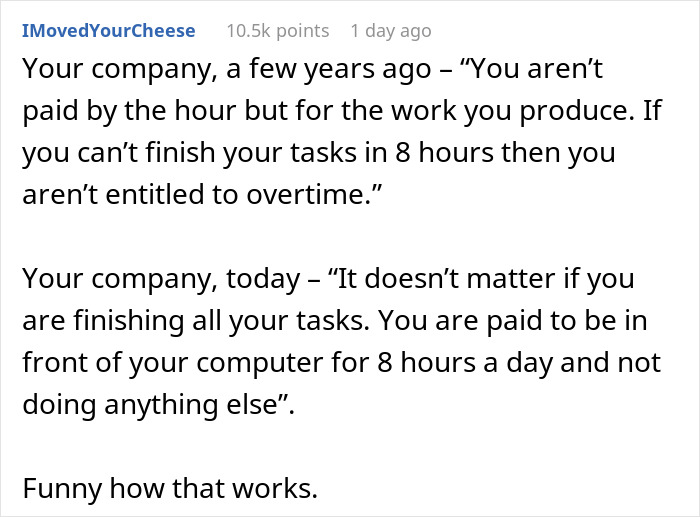
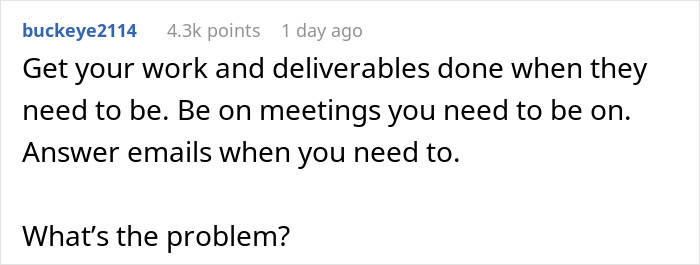
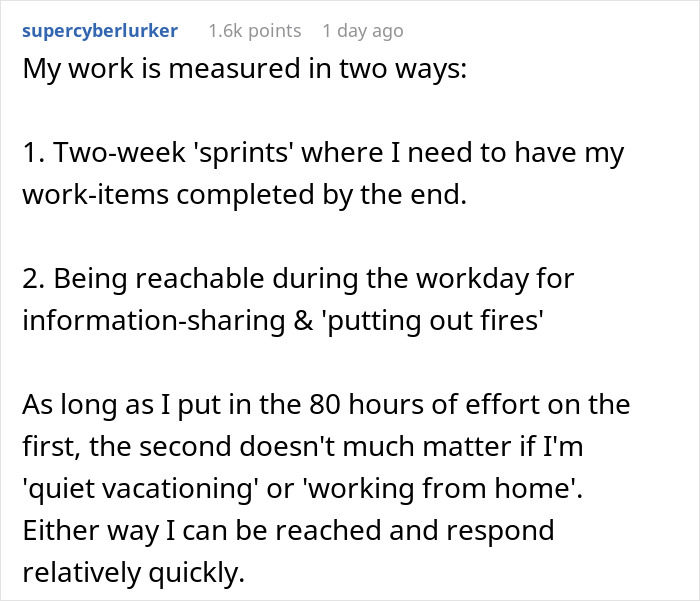
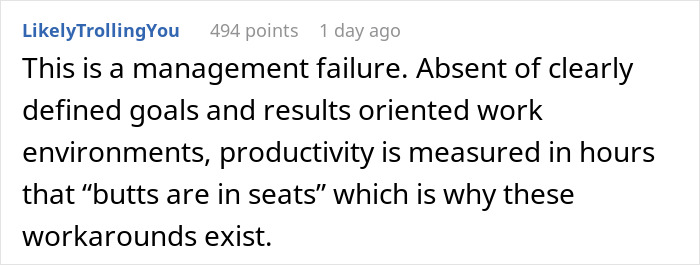
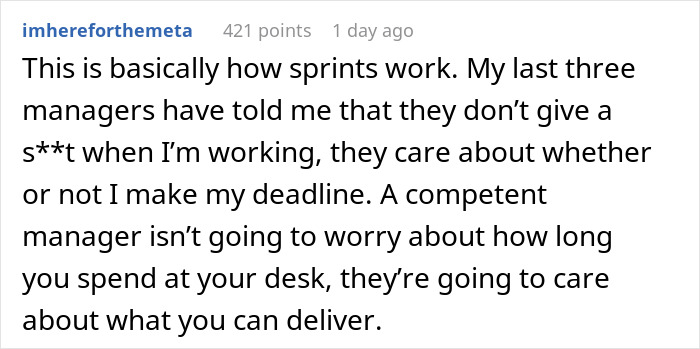



Image credits: Andrea Piacquadio (not the actual photo)



